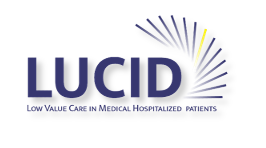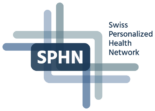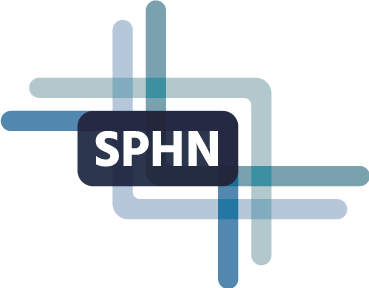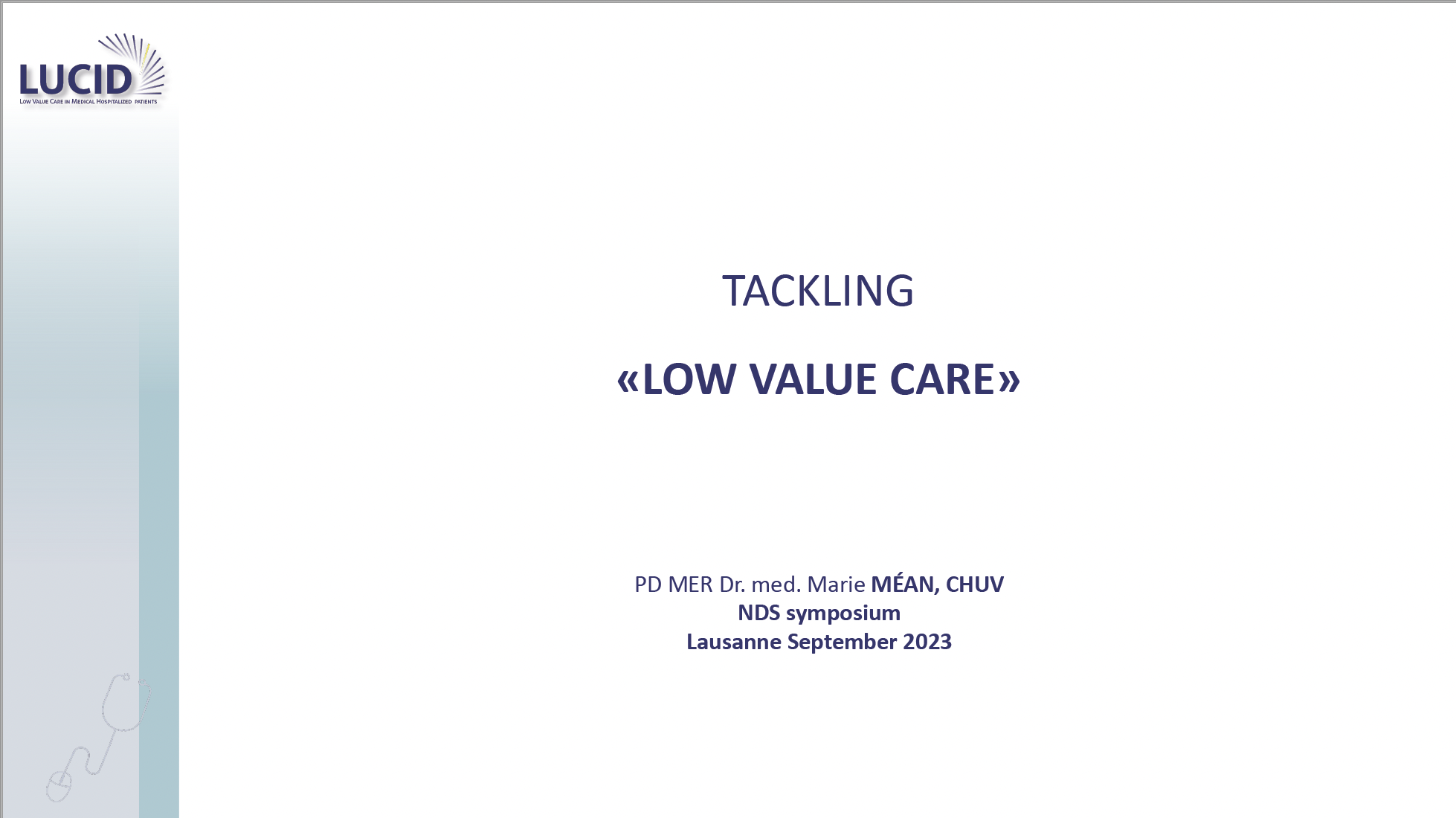LUCID, Low Value of Care in Hospitalized Patients - a National Data Stream on Quality of Care in Swiss university hospitals
Main PIs: Marie Méan (CHUV), Guillaume Obozinski (EPFL)
Project consortium: Christian Lovis (UniGE/HUG), Jean-Louis Raisaro (CHUV), Drahomir Aujesky (Inselspital), Stefano Bassetti (USB), Christophe Meier (USZ), Jerome Stirnemann (HUG), Alexander Leichtle (Inselspital), Christine Baumgartner (Inselspital), Florence Vallelian (USZ), Bram Stieltjes (USB), Oksana Riba Grognuz (EPFL), Florian Rüter (USB), Manuela Eicher (CHUV), Arnaud Chiolero (UniFr), Jérémie Despraz (CHUV)
Project manager: Jean Regina (CHUV)
Data manager: Stefan Milosavljevic (ETHZ/EPFL), Cyril Matthey-Doret (SDSC)
Patient partners: Jennifer Woods, Eric Pilet, Beat Meyer, Ute Studer, Ursula Ganz-Blätter, Patrick Staeger

Executive summary
Goal of the National Data Stream on Quality of Care
National Data Streams (NDS) are set to play an important role in making Swiss healthcare more effective, cost-efficient, data-driven, and evidence-based. Our project will focus on hospital inpatient quality of care and will attempt to find ways of improving healthcare processes in Swiss hospitals. As both the number of patients and the cost of acute care are expected to increase in the future, avoiding healthcare waste, while satisfying inpatients expectations, is key for the Swiss health system. Since value-based healthcare aims at preventing low-value healthcare processes while keeping costs under control through a patient-centered outcome orientation, and within an evidence-based and data-informed framework, our broad objective is to build an NDS permitting to monitor and study the quality of care in Swiss hospitals using existing hospital data and Patient Reported Outcomes (PROs). While the current project will focus on hospitalized patients in medicine who represent the largest part of hospitalizations, the project’s infrastructure and processes are applicable for hospitalized patients from other specialties.
Click here to read the full executive summary.
Patient and public involvement and engagement
Click here to download the lay summary of LUCID in English. The lay summary can also be found in German and French.
Data requests to LUCID
For researchers who want to apply for LUCID data, please complete the application form and the use case and risk assessment form. To submit your data request, or if you have any questions, please contact LUCID project manager Jean Regina by clicking the contact button below.
Presentation from the NDS mini-symposium 19 September 2023, Lausanne
Click here to download the LUCID presentation slides from the NDS mini-symposium.
Kick-off presentation
Click here to download the LUCID kick-off presentation slides.
Media coverage and publications
T. Guffi, J. Ehrsam, M. Débieux et al. Monitoring low-value care in medical patients from from Swiss university hospitals using a Findable, Accessible, Interoperable, Reusable (FAIR) national data stream and patient and public involvement: LUCID study protocol.
M. Débieux & M. Méan (17 June 2024). Surmédicalisation en Suisse: impact et solutions. REISO.org, Revue d'Information Sociale (in French). https://www.reiso.org/articles/themes/soins/12655-surmedicalisation-en-suisse-impact-et-solutions
I. Böhm (25 October 2023). Un écosystème de données au service de la médecine personnalisée. Bulletin des médecins suisse 2023;104(43):18–21 (in French).
I. Böhm (25 October 2023). Ein Ökosystem für die personalisierte Medizin. Schweizerische Ärztezeitung 2023;104(43):18–21 (in German).
C. Grand (8 June 2022). Réduire les soins inappropriés à l’hôpital: le défi du projet LUCID. (in French)
L. von Beust (25 August 2022). Ils veulent traquer les soins inutiles prescrits aux patients. 20 Minutes (in French). https://www.20min.ch/fr/story/ils-veulent-traquer-les-soins-inutiles-prescrits-aux-patients-581037828005
Disclaimer: The contents on this website are intended as a general source of information and have been provided by the project PIs. The SPHN Management Office is not responsible for its accuracy, validity, or completeness.


